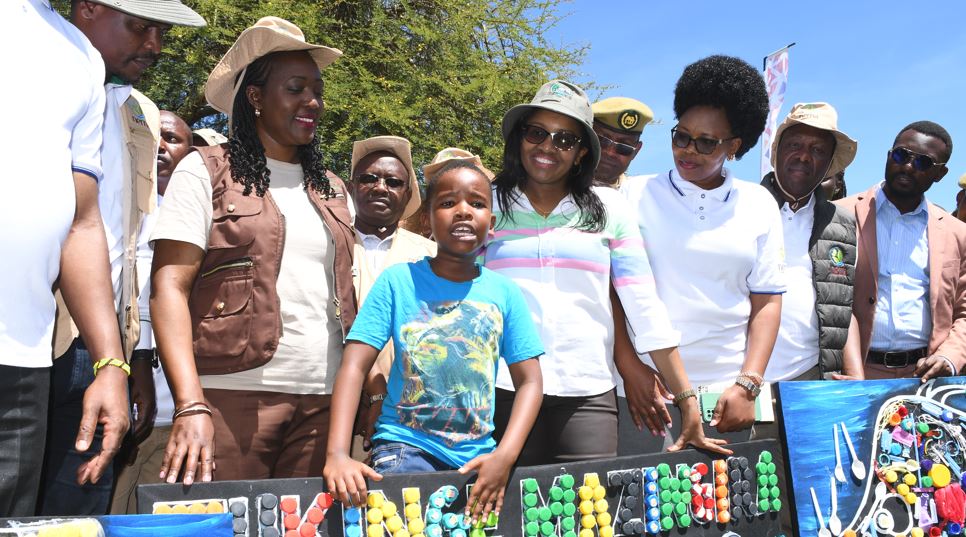Environment and Forestry CS Soipan Tuya has called for behavioral change among Kenyans if the war against plastic pollution is to be won.
Speaking in Nakuru during the national celebrations to mark the World Environment Day, Tuya regretted that single-use plastics had choked the environment, particularly water bodies, posing a serious threat to the aquatic life.
The CS underscored the need to generate and utilize knowledge around solutions to plastic pollution, saying county environmental communities across the country should conduct targeted, sustained enforcement on single-use plastics to get rid of the menace, even as we work on plastic regulations.
“We have more plastics than fish in some of our water bodies, and that’s a worrying trend,” she said.
Tuya added that putting a National solid management strategy in place would boast the county government’s waste management efforts, while calling on Kenyans to covet a clean and healthy environment through the reduction of air, land, freshwater, and marine pollution.
On her part, governor Susan Kihika, while regretting that the county had suffered environmental degradation and severe drought in the recent past, promised to spearhead the planting of 250 million trees in the next 10 years.
“A few months ago, we experienced severe drought in some parts of the county, and we are now grappling with severe flooding and erosion, particularly in Nakuru’s Kiamunyi area,” said Kihika, noting that the recently concluded county climate risk assessment would help them secure grants for environmental conservation.
National Environment Management Authority (NEMA) Board Chair Eric Mungai, while noting that on average every Kenyan consumes 30 grammes of plastic each year, regretted the impacts of plastics on livestock and fisheries resources, that in turn affected sectors such as tourism, public health, and the environment.
While proposing enhanced solid waste management and law enforcement efforts by the county governments, Mungai underscored the need to also educate the public on sustainable environmental management.
“We are not doing enough to find solutions to the plastic waste generation and management. Globally, 400 million tons of plastics are produced each year, with less than 10% recycled, and an estimated 19 to 23 million tonnes end up in lakes, rivers, and seas.
“More worrying are the microplastics, which are very tiny plastic particles which find their way into our food, water, and air, posing a threat to health,” added UNEP representative at the event, David Ombisi.
Despite Kenya having banned the use of single-use plastic carrier bags six years ago, coupled with hefty fines on manufacturers, distributors, and users, the plastics are still in circulation. The environmentalists have called on Kenyans to refuse to be packaged in papers that threaten our lives.
By Anne Sabuni and Moses Gicheha





